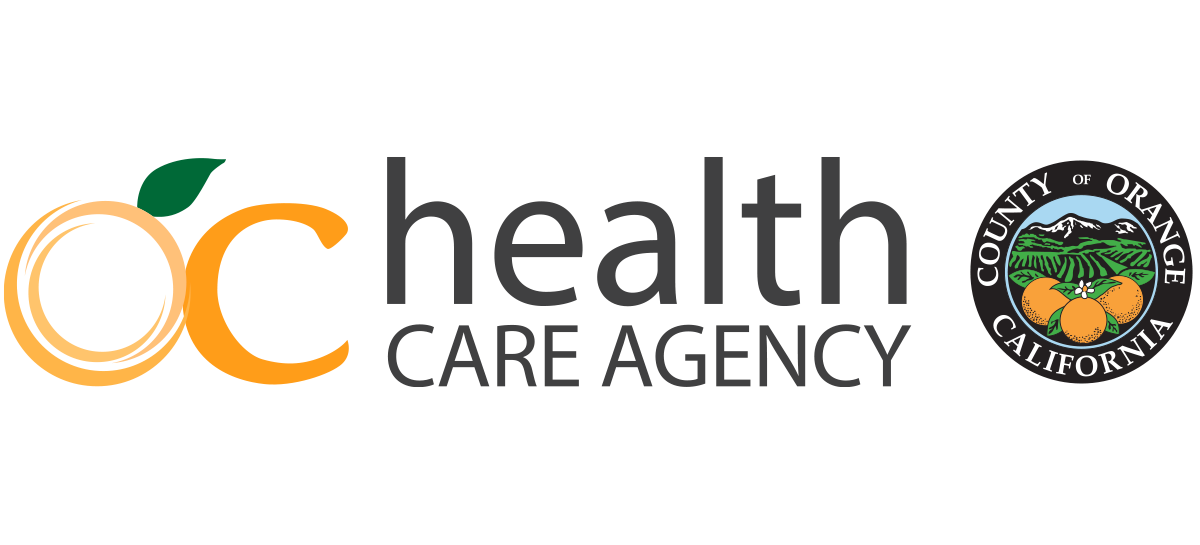Opioid Facts, Help & Resources
Learn about opioids
Opioids are natural or synthetic chemicals that interact with nerve cell receptors in the body and brain to increase pleasant feelings and reduce feelings of pain. They get their name from opium, a drug made from the poppy plant.
Prescription opioids are used to treat moderate-to-severe pain. Pain is considered acute if it starts suddenly and has a known cause, like an injury or surgery. It normally gets better as your body heals. Pain that is chronic usually lasts three months or more and can be caused by a disease or condition, injury, medical treatment, inflammation, or even an unknown reason.
The medication typically comes in a pill form, but can also appear as a liquid, wafer or patch worn on the skin.
Examples of prescribed opioid medications include:
- Hydrocodone (Vicodin®, Lortab®, or Lorcet®)
- Oxycodone (Percocet®, OxyContin®, or Percodan®)
- Codeine (an ingredient in some cough syrups and in one Tylenol® product)
- Hydromorphone (Dilaudid®)
- Morphine (MSContin®, MSIR®, Avinza®, or Kadian® Propoxyphene—Darvocet® or Darvon®)
- Fentanyl (Duragesic®)
- Methadone
Examples of illegal opioids include heroin and fentanyl. Heroin is a highly addictive opioid drug. An overdose from heroin can cause slow and shallow breathing, coma, and even death. Pharmaceutical fentanyl is a synthetic opioid pain reliever, approved for treating severe pain, typically advanced cancer pain. It is 50 to 100 times more potent than morphine. Recent cases of fentanyl-related harm, overdose, and death in the US have been linked to illegally made fentanyl. It is often mixed with heroin and/or cocaine as a combination product to increase its effects.
You should only take prescription opioids for a short time and only as prescribed by a doctor, because they become much less safe when they are misused. People misuse prescription opioids by:
- Taking the medicine in a way or dose other than prescribed
- Taking someone else’s prescription medicine
- Taking the medicine to get high
With millions of Americans who suffer from pain being prescribed opioids to treat their conditions, the dangers of prescription misuse, opioid use disorder, and overdoses have become a problem nationally, statewide, and locally here in Orange County.
Yes. Opioids are highly addictive drugs, meaning that they can make changes to your brain that result in:
- Cravings: the mind develops an overwhelming desire for the drug, oftentimes to reduce the physical symptoms of withdrawal
- Loss of control: it becomes harder to say “no” to using the drug, so you continue to use it compulsively, even when it causes harm
Addiction usually occurs through misuse, but it sometimes happens even to people using the medication properly. Some people are at higher risk of addiction because of their genes, temperament or personal situation. Talk with your health care provider about the risks you may face.
Anyone could become dependent on prescription opioids, so everyone should be concerned about taking them. If you or someone you know receives a prescription for opioids, make sure to ask a doctor about side effects, risks and potential non-opioid alternatives before starting to take the drug.
Yes. In recent years, an alarming number of opioid overdoses and deaths have occurred throughout the United States – which has led people to say we are experiencing an opioid crisis, or opioid epidemic. Orange County is no exception. As the OC Health Care Agency’s “Addressing the Opioid Crisis in Orange County, CA” report shows:
- Nearly 1.5 million opioid prescriptions were dispensed to residents here in 2018
- Opioid-related emergency department visits in the county more than tripled between 2005 and 2016
- 7 out of 10 drug related deaths in the county involve opioids
- More than half of opioid overdose deaths involve prescription opioids
- More than 80% of opioid overdose deaths are accidental
Where to get help
If you or someone you know is having a life-threatening medical emergency, call 911 immediately.
For all other issues, Orange County residents have many resources available to them, including the following.
- Your Health Care Provider
- OC Links
OC Links Behavioral Health Line is available 24/7 at (855) 625-4657. OC Links provides information and linkage to any of the Health Care Agency’s Behavioral Health Services, including crisis services, via telephone and chat. Callers can be potential participants, family members, friends, law enforcement and other first responders, providers or anyone seeking behavioral health resources and support. Trained Navigators provide information, referral, and linkage directly to programs in the behavioral health continuum of care from prevention through crisis identification and response. If you would like to learn more about services available through Behavioral Health Services, OC Links is available 24 hours a day, 7 days a week. Please call (855) OC-LINKS to be connected to a Behavioral Health Navigator, or start an OC Links online chat. TDD Number: 714-834-2332. - Orange County Network of Care
A website that serves as a comprehensive resource for individuals, families and agencies seeking information on health care including behavioral health, featuring a service directory, a library of articles on health-related topics, a mechanism for tracking state and federal legislation, and more. The website also offers a second website specifically for Veterans. - 2-1-1 Orange County
A comprehensive information and referral service for health and human services and supports in Orange County that is accessible 24 hours a day, 7 days a week online and through a multilingual line. - WarmLine
Provides confidential telephone support service for anyone who has concerns about mental health, substance use, is lonely or confused, or who needs information about available mental health services. Call 877-910-WARM or text 714-991-6412 Monday through Friday from 9 a.m. – 3 a.m. and Saturday/Sunday from 10 a.m. – 3 a.m. - National Suicide Prevention Lifeline
If you or any loved ones are thinking about suicide, call this free hotline immediately – 800-273-TALK (8255).
Yes. Opioid addiction is a chronic disease, like heart disease or diabetes. It cannot be cured, but it can be managed. A person with addiction can regain a healthy, productive life.
To do that, most people need help to change their addictive behavior into non-addictive, healthful patterns. This process is called treatment, and involves doctors and substance use treatment providers providing patients with comprehensive, long-term care, with the goal of moving into recovery, and beginning to live healthy, addiction-free lifestyles.
Managing an opioid addiction can be an incredibly difficult, lifelong struggle. Which is why you should take every precaution possible to avoid becoming addicted in the first place. Talk with your health care professional to learn more.
An opioid overdose can occur for a variety of reasons, including overusing prescribed medications, using someone else’s prescribed opioid, or mixing a prescription opioid with alcohol or other drugs. An opioid overdose is life-threatening and requires immediate emergency attention. Recognizing the signs of an opioid overdose is essential to saving a life.
Call 911 immediately if a person exhibits any of these symptoms:
- Their face is extremely pale and/or feels clammy to the touch
- Their body goes limp
- Their fingernails or lips have a purple or blue color
- They start vomiting or making gurgling noises
- They cannot be awakened or are unable to speak
- Their breathing or heartbeat slows or stops
Naloxone, also known by its brand name Narcan, is a medication that can reverse the life-threatening effects of an opioid overdose within minutes. A person can get this medication from a community organization that distributes naloxone or from a California pharmacist (a prescription from a health care provider is not necessary). Click here to learn more about naloxone and how you can potentially save someone’s life in the event of an overdose.
Keeping unused, expired, or unwanted medications like prescription opioids in your home creates a serious safety concern to children, family members, or friends who may be able to access them without a prescription. To protect your loved ones, dispose of unused medications safely. There are many ways to do so.
Disposing of medications at home is as easy as 1, 2, 3. Also, there are local disposal locations and Take Back Day events that offer no-cost disposal of unused medications.
More resources
Download the OC Health Care Agency’s (HCA) report, “Addressing the Opioid Crisis in Orange County, CA.” This publication details the extensive, strategic prevention, harm reduction, treatment and recovery efforts led by the HCA’s Behavioral Health Services team and which is underway countywide. It also includes an appendix on behalf of the Orange County Alcohol Drug Advisory Board that summarizes crucial feedback from stakeholders impacted by the opioid crisis.
The Orange County Health Care Agency developed wrongforyou.com as part of a broader effort to reduce prescription opioid overuse, emergency department visits, and deaths in Orange County. This website and associated campaign materials were developed in response to Orange County data for those at risk of opioid misuse. In partnership with the community, HCA’s mission is to protect and promote the health and safety of individuals and families in Orange County through:
- Assessment and planning
- Prevention and education
- Treatment and care
To learn more about HCA, visit ochealthinfo.com.
Thanks for wanting to help! Anyone can do their part by sharing this website with family, friends, coworkers and connections both in person and on social media.
Community Partners Outreach
Want to spread the message about preventing opioid misuse with your followers?
Download and share the following materials today!

